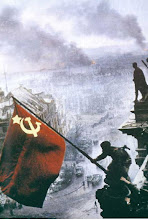
Yesterday was the opening day of the Dáil, our Parliament, once a revolutionary institution set up as an alternative centre of democratic power in Ireland before the British state relinquished political control of Ireland. Nowadays the Dáil is widely derided by the people of Ireland as the soiled and festering bed of parasites, gougers, shoneens, gombeens, and gobshites who run this poor benighted country. So as a result I have'nt heard anything but sympathy for the man who rammed the gates the Dáil building y
 esterday morning with a cement lorry, covered with slogans protesting about how the debts of Anglo-Irish bank being shouldered by the people of Ireland is grinding this country and its people into a morass of unemployment and sovereign debt that this state will be paying off for generations.
esterday morning with a cement lorry, covered with slogans protesting about how the debts of Anglo-Irish bank being shouldered by the people of Ireland is grinding this country and its people into a morass of unemployment and sovereign debt that this state will be paying off for generations.The cost of bailing out Anglo Irish Bank, the lender at the centre of Ireland's financial crisis, could rise to €34bn (£29.1bn) under a worst case scenario, the Irish central bank admitted today. The news came as the country's finance minister warned that the failure of the nationalised bank would "bring down" Ireland, and warned of further austerity measures.
In an interview with the Financial Times, Brian Lenihan said Ireland had no choice but to act. "Any Anglo failure would bring down the sovereign. It is systemically important not because of any intrinsic merit in the bank, I can assure [you] I don't see any. But because of its size relative to the national balance sheet. No country could contemplate the failure of such an institution," he said."The soaring costs of supporting the Irish banking system will cause the government's budget deficit to rise to 32% of gross domestic product this year, Finance Minister Brian Lenihan said in his statement on Thursday.The EU limits only permit a deficit to reach 3% of GDP ideally....That estimate places the deepest deficit for any euro-zone country since the launch of the shared currency in 1999. Ireland, like other fiscally weakened countries such as Greece and Portugal and Spain, has been struggling to imposed radical spending cuts and tax increases to close budg et gaps without triggering another recession.
et gaps without triggering another recession.
What really infuriates people here is that....
i) the bankers and their cronies who brought the country to ruin are still swanning around Ireland and the world apparently completely immune to prosecution..Michael Lynn the lawyer who shafted €40 million off of his clients is sunning himself in the Algarve apparently without seemingly a care in the world. Sean Fitzpatrick the former boss of Anglo would have the courts believe he is on €188 a month when he continues to live a millionaire lifestyle.. (see seanie golfing pic) A lifefestyle he is enjoying courtesy of his wife who seems to have ready access to millions surprise surprise....seen here driving that battered old vehicle ...There is a widespread feeling that these creatures are beneficiaries of a discreet web of protection from the highest levels of gombeenism in this disfunctional (even by capitalist standards) state.
ii) The so called 'small people' who owe money or who protest are pursued with the full force of the state, the Anglo Avenger cement lorry driver is to be charged by the Director of Public Prosecutions with criminal damage, and no doubt fined heavily or even imprisoned. A young man made jobless in the crisis was jailed for failing to pay a €240 euro fine, he was released only when his father drew attention to this on the Joe Duffy liveline programme on RTE radio 1
People here are angry, but they have'nt got a focus to trigger a mass response. the organised trade union movement grew scared at the strength of workers responses to the few days of action organised in the Spring...the Trade Union bosses at SIPTU sold us out and signed a deal with government to stymie public sector resistance. The so called 'Labour Party' lead by ex-stickie Eamon Gilmore is so desperate to get into government they are not leading anything other than token verbal resistance. Quite frankly Sinn Féin seems paralysed and unimaginative and unwilling to mobilise mass protest.
Popular mass protests WILL erupt here, all that is required is the spark to ignite the blue touchpaper leading to the huge powder keg of anger waiting to explode....






